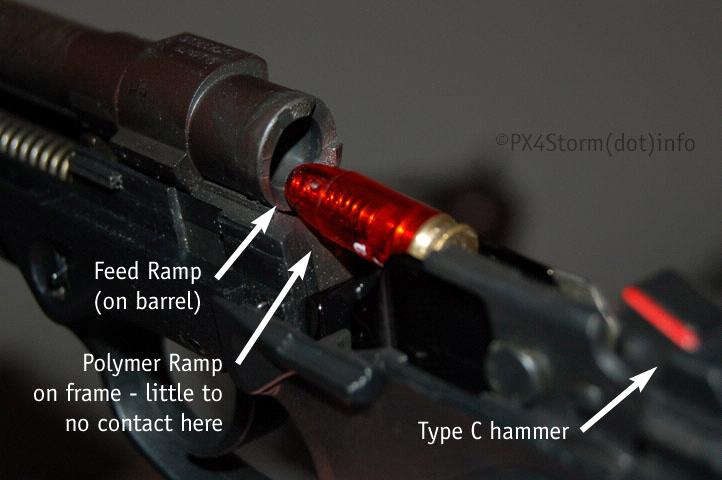Hello Y'all,
I am brand new to the forum, so hello.
Up until about a week ago I had no idea Stoeger even made pistols. I was shotgun hunting and came across it.
Now, correct me if I'm wrong, but isn't this Cougar basically Beretta's Cougar? First, how'd they get away with doing that? Second, how does it compare to Beretta's?
I have a VERY vague understanding of the way the barrel rotates when fired. If you'd be so good as to give me the nickel tour on how that works, I'd appreciate it. I am more interested in the real world difference this system has on performance (if any). I could see it making the pistols a bit more accurate, but just how much more accurate? Does it run into any complications that a traditionally configured pistol wouldn't? Either different complications or more of the more familiar problems you might run into shooting a pistol. Any ideas on any of this, or on anything I haven't asked but should know?
I am NOT looking to buy either Cougar, but once again, honestly, I didn't know of the difference these two pistols had in relation to common pistols - never heard of this unique recoil system. Why not? Well... I was never interested in either, have a slight & unreasonable bias against Beretta and - more honesty - am not overmuch into shooting. Don't get me wrong, I have exactly 11 guns and shoot them. Not as much as I should (or would like - time is hard to come by for me), but I get out to the range at least once a month.
On the other hand, I read nothing regarding firearms and most of my friends (all but 1, now I think of it) don't like to shoot - and the one who does shoots even less than I. My father and/or brother are my main shooting buddies. Neither of them make a study of firearms and even combined have less than my 11 weapons. None of us hunt (no objection to it!!! just time, time, time - and perhaps b/c we didn't grow up hunting).
So excuse my ignorance on what may be, to y'all, common knowledge. Thanks for your input, and just for reading this.
Thanks & God Bless,
Pano
I am brand new to the forum, so hello.
Up until about a week ago I had no idea Stoeger even made pistols. I was shotgun hunting and came across it.
Now, correct me if I'm wrong, but isn't this Cougar basically Beretta's Cougar? First, how'd they get away with doing that? Second, how does it compare to Beretta's?
I have a VERY vague understanding of the way the barrel rotates when fired. If you'd be so good as to give me the nickel tour on how that works, I'd appreciate it. I am more interested in the real world difference this system has on performance (if any). I could see it making the pistols a bit more accurate, but just how much more accurate? Does it run into any complications that a traditionally configured pistol wouldn't? Either different complications or more of the more familiar problems you might run into shooting a pistol. Any ideas on any of this, or on anything I haven't asked but should know?
I am NOT looking to buy either Cougar, but once again, honestly, I didn't know of the difference these two pistols had in relation to common pistols - never heard of this unique recoil system. Why not? Well... I was never interested in either, have a slight & unreasonable bias against Beretta and - more honesty - am not overmuch into shooting. Don't get me wrong, I have exactly 11 guns and shoot them. Not as much as I should (or would like - time is hard to come by for me), but I get out to the range at least once a month.
On the other hand, I read nothing regarding firearms and most of my friends (all but 1, now I think of it) don't like to shoot - and the one who does shoots even less than I. My father and/or brother are my main shooting buddies. Neither of them make a study of firearms and even combined have less than my 11 weapons. None of us hunt (no objection to it!!! just time, time, time - and perhaps b/c we didn't grow up hunting).
So excuse my ignorance on what may be, to y'all, common knowledge. Thanks for your input, and just for reading this.
Thanks & God Bless,
Pano

